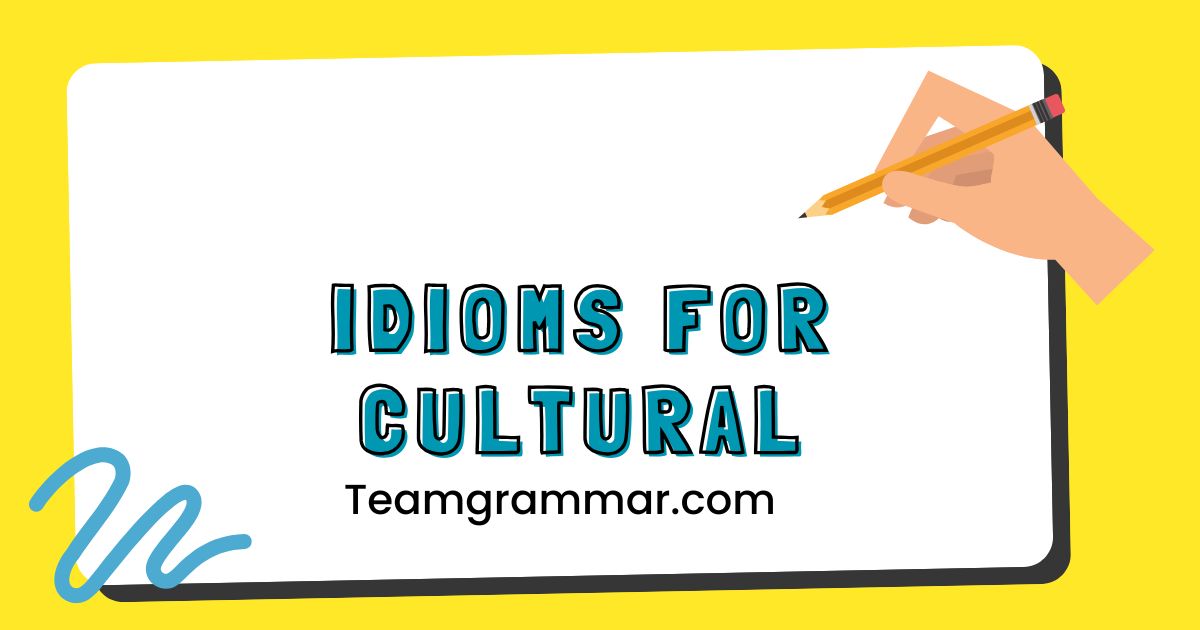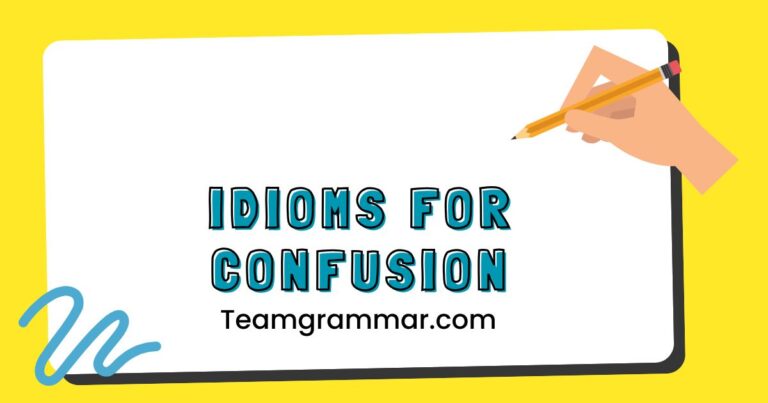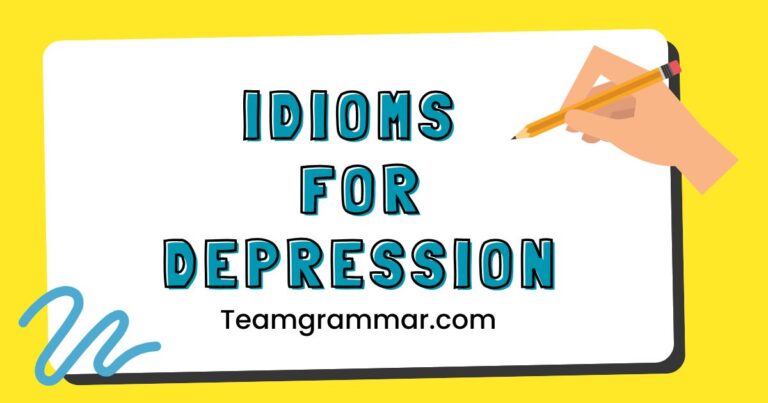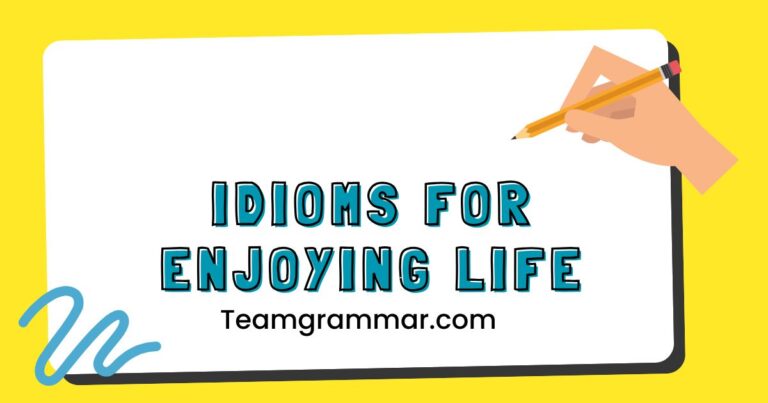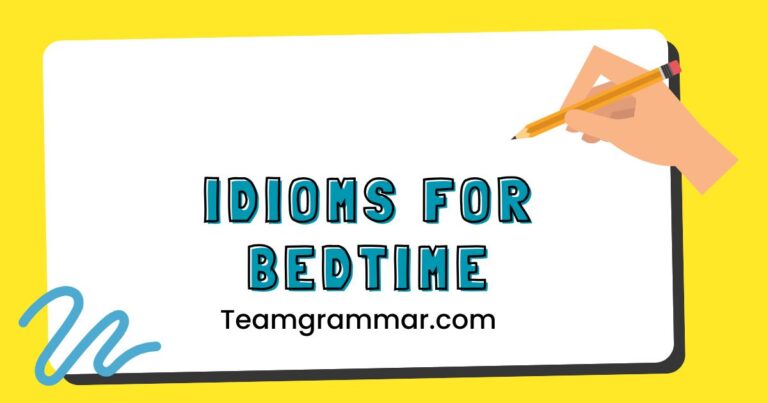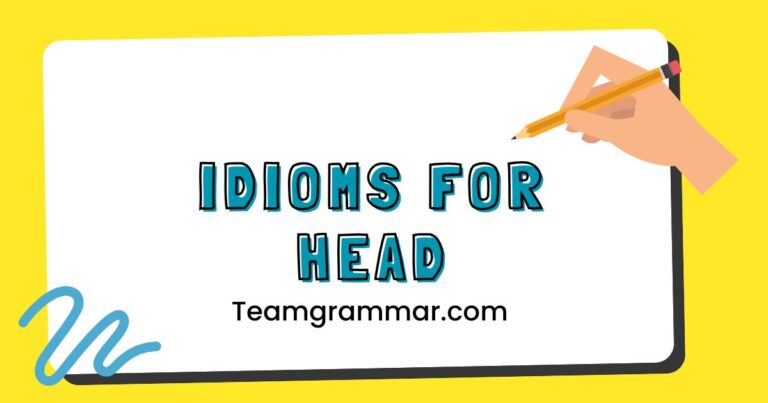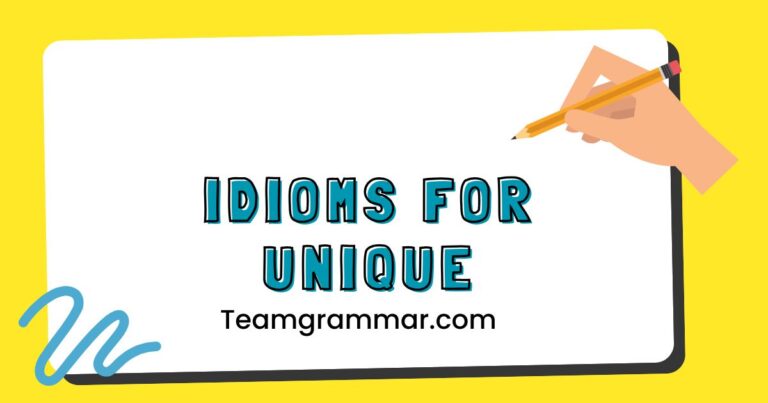37 Cultural Idioms: Mastering English Expressions & Their Meanings
Idioms are an integral part of the English language, adding color, depth, and nuance to communication. However, many idioms are deeply rooted in culture, reflecting the history, values, and experiences of a particular society.
Understanding these cultural idioms is crucial for effective communication, preventing misunderstandings, and appreciating the richness of the English language. This article provides a comprehensive guide to cultural idioms, exploring their definitions, structures, usage rules, and common mistakes.
This is beneficial for ESL learners, language enthusiasts, and anyone seeking to enhance their understanding of English.
Table of Contents
- Introduction
- Definition of Cultural Idioms
- Structural Breakdown of Cultural Idioms
- Types and Categories of Cultural Idioms
- Examples of Cultural Idioms
- Usage Rules of Cultural Idioms
- Common Mistakes with Cultural Idioms
- Practice Exercises
- Advanced Topics in Cultural Idioms
- Frequently Asked Questions (FAQ)
- Conclusion
Definition of Cultural Idioms
What is an Idiom?
Anidiomis a phrase or expression whose meaning cannot be understood from the ordinary meanings of the words within it. Instead, it has a figurative meaning that is known through common use.
Idioms add color and expressiveness to language, making it more engaging and interesting. For example, the idiom “kick the bucket” means “to die,” but you wouldn’t know this from the individual words themselves.
Idioms are different from literal expressions, where the meaning of the words directly corresponds to the meaning of the phrase. Recognizing and understanding idioms is essential for effective communication, especially in informal contexts.
Cultural Influence on Idioms
Cultural idiomsare phrases that are deeply embedded in the history, traditions, and values of a particular culture. They often reflect unique aspects of a society’s way of life, its beliefs, and its historical experiences.
These idioms can be challenging for non-native speakers to understand because their meanings are not immediately apparent and require knowledge of the cultural context.
For instance, the idiom “raining cats and dogs” is thought to originate from a time when poor sanitation led to animals being washed away during heavy rainfall. Understanding this historical context can provide insight into the idiom’s meaning.
Cultural idioms are a window into a culture’s identity and its unique way of expressing ideas.
Classification of Cultural Idioms
Cultural idioms can be classified based on their origin or the aspect of culture they represent. Some common classifications include:
- Historical Idioms: These idioms originate from historical events, figures, or practices.
- Literary Idioms: These idioms are derived from famous works of literature.
- Regional Idioms: These idioms are specific to certain geographic regions or dialects.
- Social Idioms: These idioms reflect social customs, norms, or behaviors.
- Food-Related Idioms: These idioms use food as a metaphor to express various ideas.
- Animal-Related Idioms: These idioms use animals to convey certain characteristics or situations.
- Weather-Related Idioms: These idioms use weather conditions to describe moods or situations.
Structural Breakdown of Cultural Idioms
Syntax and Grammar
The syntax of idioms can vary widely, ranging from simple phrases to complex clauses. Idioms often follow standard grammatical rules, but their meaning is not derived from the grammatical structure.
Some idioms may appear grammatically incorrect when taken literally, but they are accepted as correct within their idiomatic context. For example, “long time no see” is grammatically unconventional but is a widely recognized idiom.
Understanding the grammatical structure of an idiom can help you incorporate it correctly into your sentences. While the meaning is figurative, the grammatical structure still needs to be accurate to ensure clear communication.
The flexibility of idioms allows them to be adapted to different grammatical contexts, such as changing verb tenses or adding modifiers.
Metaphor and Simile in Idioms
Many idioms rely onmetaphorsandsimilesto convey their figurative meanings. A metaphor is a figure of speech that directly compares two unrelated things, while a simile uses “like” or “as” to make a comparison.
For example, the idiom “a piece of cake” uses a metaphor to suggest that something is easy, comparing it to the ease of eating a cake.
Similes are also common in idioms, such as “as cool as a cucumber,” which compares someone’s calmness to the coolness of a cucumber. Recognizing the use of metaphors and similes in idioms can help you understand their underlying meaning and appreciate their creative use of language.
These figures of speech add depth and color to idioms, making them more memorable and impactful.
Types and Categories of Cultural Idioms
Historical Idioms
Historical idiomsoriginate from specific historical events, figures, or practices. These idioms often require knowledge of the historical context to fully understand their meaning.
They provide a glimpse into the past and reflect the cultural values and experiences of a particular time. Examples include phrases related to wars, political events, or social changes.
Literary Idioms
Literary idiomsare derived from famous works of literature, such as novels, poems, or plays. These idioms often reference characters, events, or themes from the original work.
Understanding these idioms requires familiarity with the literary source. They are frequently used in academic and intellectual discussions.
Regional Idioms
Regional idiomsare specific to certain geographic regions or dialects. These idioms may not be understood by people from other regions.
They often reflect local customs, traditions, or ways of life. Regional idioms add richness and diversity to the English language.
Social Idioms
Social idiomsreflect social customs, norms, or behaviors. These idioms often describe interpersonal relationships, social interactions, or cultural values.
Understanding social idioms is essential for navigating social situations effectively.
Food-Related Idioms
Food-related idiomsuse food as a metaphor to express various ideas. These idioms often describe personality traits, situations, or emotions.
Food is a common element in many cultures, making food-related idioms easily relatable.
Animal-Related Idioms
Animal-related idiomsuse animals to convey certain characteristics or situations. These idioms often attribute human qualities to animals, creating vivid and memorable expressions.
Animal idioms are common in many cultures and reflect people’s relationships with the natural world.
Weather-Related Idioms
Weather-related idiomsuse weather conditions to describe moods or situations. These idioms often draw parallels between weather patterns and human emotions or events.
Weather is a universal experience, making weather-related idioms widely understood.
Examples of Cultural Idioms
Historical Idioms Examples
Below is a table showcasing various historical idioms, their meanings, and example sentences demonstrating their usage.
| Idiom | Meaning | Example Sentence |
|---|---|---|
| Crossing the Rubicon | Making an irreversible decision | By investing all his savings in the startup, he crossed the Rubicon. |
| Burn one’s bridges | To destroy relationships or opportunities | She burned her bridges with her old company when she publicly criticized their policies. |
| To be in the trenches | To be involved in the difficult, hard work of something | Our team is in the trenches, working hard to meet the deadline. |
| Bury the hatchet | To make peace after a conflict | After years of feuding, the two families decided to bury the hatchet. |
| Ride shotgun | To sit in the front passenger seat of a vehicle | “I call riding shotgun!” he shouted as they headed to the car. |
| Spill the beans | Reveal a secret | She accidentally spilled the beans about the surprise party. |
| Get down to brass tacks | To focus on the essential details | Let’s get down to brass tacks and discuss the budget. |
| The die is cast | A decision has been made and cannot be changed | The die is cast; we must proceed with the plan. |
| Between a rock and a hard place | Faced with two equally difficult alternatives | He was between a rock and a hard place, unable to please either his boss or his client. |
| Mad as a hatter | Completely insane | After working non-stop for weeks, he was as mad as a hatter. |
| On the warpath | In an angry or aggressive mood | The boss was on the warpath after discovering the project was behind schedule. |
| Pillar of salt | A person who disobeys a direct order and suffers the consequences | She became a pillar of salt when she disobeyed the explicit instructions. |
| Clean slate | A fresh start, free from past mistakes | After the bankruptcy, he was determined to start with a clean slate. |
| Powder monkey | A person who is used for dangerous or menial tasks | He felt like a powder monkey, constantly running errands for his demanding boss. |
| Run the gauntlet | To endure a series of criticisms, challenges, or attacks | The politician had to run the gauntlet of tough questions from the media. |
| Show your true colors | To reveal your real personality or intentions | He showed his true colors when he betrayed his friends for personal gain. |
| Sound the alarm | To warn of danger or trouble | When they saw the smoke, they sounded the alarm. |
| Steal someone’s thunder | To take credit for someone else’s accomplishments or ideas | He stole her thunder by presenting her idea as his own. |
| Take someone to the cleaners | To completely defeat or financially ruin someone | The lawyer threatened to take the company to the cleaners in the lawsuit. |
| The handwriting is on the wall | An impending disaster or failure is evident | The handwriting is on the wall for the company; they’re sure to go bankrupt. |
Literary Idioms Examples
The following table illustrates literary idioms, their origins, meanings, and usage in example sentences.
| Idiom | Origin | Meaning | Example Sentence |
|---|---|---|---|
| Catch-22 | Joseph Heller’s “Catch-22” | A paradoxical situation where someone is trapped by contradictory rules | He was in a catch-22: he needed experience to get the job, but he couldn’t get experience without the job. |
| Albatross around one’s neck | Samuel Taylor Coleridge’s “The Rime of the Ancient Mariner” | A burden or obstacle that is difficult to get rid of | The failed project became an albatross around his neck, haunting his career. |
| Something wicked this way comes | William Shakespeare’s “Macbeth” | An indication of approaching evil or trouble | When the ominous clouds gathered, he knew something wicked this way comes. |
| Brevity is the soul of wit | William Shakespeare’s “Hamlet” | Conciseness is essential for effective humor | His jokes were always well-received because he understood that brevity is the soul of wit. |
| A pound of flesh | William Shakespeare’s “The Merchant of Venice” | Demanding repayment of a debt, no matter how much suffering it causes | The loan shark was determined to get his pound of flesh, even if it meant ruining the debtor’s life. |
| All that glitters is not gold | William Shakespeare’s “The Merchant of Venice” | Appearances can be deceptive | She was initially impressed by his wealth, but she soon realized that all that glitters is not gold. |
| The green-eyed monster | William Shakespeare’s “Othello” | Jealousy | The green-eyed monster reared its head when she saw her friend’s success. |
| A plague on both your houses | William Shakespeare’s “Romeo and Juliet” | A curse or condemnation on both sides of a conflict | Frustrated with the endless bickering, he exclaimed, “A plague on both your houses!” |
| To be or not to be | William Shakespeare’s “Hamlet” | To consider whether or not to live, or to take action or not | He pondered his future, wondering to be or not to be in his current job. |
| Much Ado About Nothing | William Shakespeare’s play “Much Ado About Nothing” | A lot of excitement or concern about something that is not important | The argument turned out to be much ado about nothing when they realized they were both talking about different things. |
| A Frankenstein | Mary Shelley’s “Frankenstein” | Something that becomes destructive or uncontrollable | The artificial intelligence project turned into a Frankenstein, causing more problems than it solved. |
| Big Brother is watching you | George Orwell’s “1984” | Constant surveillance by a controlling authority | In this society, Big Brother is watching you, and you have no privacy. |
| Don Quixote | Miguel de Cervantes’ “Don Quixote” | Someone who is idealistic and impractical | He was a Don Quixote, always chasing impossible dreams. |
| Every man for himself | Geoffrey Chaucer’s “The Canterbury Tales” | A situation where everyone is looking out for their own interests | When the ship started sinking, it was every man for himself. |
| Faustian bargain | Johann Wolfgang von Goethe’s “Faust” | Making a deal with the devil for short-term gain but long-term consequences | He made a Faustian bargain when he sacrificed his integrity for success. |
| Heart of Darkness | Joseph Conrad’s “Heart of Darkness” | The dark and savage aspects of human nature | The war revealed the heart of darkness that lurked within the soldiers. |
| I think, therefore I am | René Descartes’ “Discourse on the Method” | The fundamental principle of existence based on thought | I think, therefore I am” is a basic philosophical truth. |
| Kafkaesque | Franz Kafka’s works | Marked by a senseless, disorienting, and often menacing complexity | The bureaucratic process was so confusing that it felt Kafkaesque. |
| Lost Generation | Gertrude Stein’s reference to post-World War I writers | The generation that came of age during World War I | The writers of the Lost Generation captured the disillusionment of the post-war era. |
| Moby Dick | Herman Melville’s “Moby Dick” | An obsessive pursuit or an impossible goal | The search for a cure for the rare disease became his Moby Dick. |
Regional Idioms Examples
Below is a table showcasing various regional idioms, their meanings, and example sentences demonstrating their usage.
| Idiom | Region | Meaning | Example Sentence |
|---|---|---|---|
| Y’all | Southern United States | You all | Y’all come back now, ya hear? |
| Fixin’ to | Southern United States | About to | I’m fixin’ to go to the store. |
| The bee’s knees | United States (1920s slang) | Excellent; the best | That new car is the bee’s knees! |
| Bob’s your uncle | British English | And there you have it; it’s as simple as that | Add the flour, mix it well, and Bob’s your uncle, you have a cake. |
| Knackered | British English | Extremely tired | After a long day at work, I’m absolutely knackered. |
| Ace | Australian English | Excellent, great | That was an ace performance! |
| G’day | Australian English | Good day; hello | G’day, mate! How are you? |
| Eh? | Canadian English | Used to ask for confirmation or clarification | It’s a beautiful day, eh? |
| Keener | Canadian English | Eager, enthusiastic | She’s a real keener when it comes to volunteering. |
| Jawn | Philadelphia, USA | A general term for anything | Pass me that jawn over there. |
| Wicked | Boston, USA | Very, extremely | That coffee is wicked strong. |
| Hella | Northern California, USA | Very, a lot of | That concert was hella fun. |
| Bagsy | British English | To claim something | Bagsy the front seat! |
| Bloke | British English | A man | He’s a good bloke. |
| Chuffed | British English | Pleased, delighted | I’m really chuffed with my exam results. |
| Cozzie | Australian English | Swimsuit | Don’t forget your cozzie for the beach. |
| Dag | Australian English | A funny or eccentric person | He’s a bit of a dag, but we like him. |
| Hoser | Canadian English | A foolish or unsophisticated person | Don’t be such a hoser! |
| Give ‘er | Canadian English | Go for it; give it your best shot | Give ‘er, you can do it! |
| Yinz | Pittsburgh, USA | You all | How are yinz doing today? |
Social Idioms Examples
The following table provides examples of social idioms, detailing their meanings and how they are used in sentences.
| Idiom | Meaning | Example Sentence |
|---|---|---|
| Break the ice | To make a start by easing tension or formality | The comedian told a joke to break the ice at the awkward party. |
| Keep up with the Joneses | To try to match or exceed the material possessions of one’s neighbors | They were always trying to keep up with the Joneses, buying things they couldn’t afford. |
| A social butterfly | Someone who is very social and enjoys attending parties and events | She’s such a social butterfly; she knows everyone in town. |
| Lend an ear | To listen sympathetically | If you need someone to talk to, I’m always here to lend an ear. |
| On the same page | In agreement or understanding | Let’s make sure we’re all on the same page before we start the project. |
| Read between the lines | To understand the hidden meaning | You have to read between the lines to understand what he’s really saying. |
| See eye to eye | To agree fully | They finally saw eye to eye on the terms of the agreement. |
| Small talk | Polite conversation about unimportant topics | I hate making small talk at networking events. |
| Speak your mind | To say what you really think | Don’t be afraid to speak your mind during the meeting. |
| Take the floor | To begin speaking in a meeting or debate | The chairman invited her to take the floor. |
| Turn a blind eye | To ignore something wrong or illegal | The authorities turned a blind eye to the corruption. |
| Walk on eggshells | To be very careful not to offend someone | I have to walk on eggshells around my boss because he’s so sensitive. |
| A chip on one’s shoulder | To have a resentful or aggressive attitude | He’s got a chip on his shoulder ever since he was passed over for the promotion. |
| Back to square one | To start again from the beginning | The deal fell through, so we’re back to square one. |
| Call a spade a spade | To speak frankly and directly | Let’s call a spade a spade: this project is a disaster. |
| Cut to the chase | To get to the point quickly | Let’s cut to the chase and discuss the real issue. |
| Get something off your chest | To express something that has been bothering you | I need to get something off my chest; I’ve been feeling resentful. |
| Hit it off | To get along well with someone immediately | They hit it off at the party and talked for hours. |
| Pull strings | To use influence to get something done | He had to pull strings to get his son into the prestigious school. |
| Rock the boat | To disrupt or cause trouble | I don’t want to rock the boat by questioning the boss’s decisions. |
Food-Related Idioms Examples
Presented below is a table featuring food-related idioms, their meanings, and example sentences illustrating their usage.
| Idiom | Meaning | Example Sentence |
|---|---|---|
| Piece of cake | Very easy | The exam was a piece of cake. |
| Take something with a grain of salt | To not completely believe something | You should take his claims with a grain of salt; he tends to exaggerate. |
| Spill the beans | To reveal a secret | She accidentally spilled the beans about the surprise party. |
| In a nutshell | Briefly, in summary | In a nutshell, the project was a success. |
| Full of beans | Lively, energetic | The children were full of beans after their nap. |
| Butter someone up | To flatter someone in order to get something | He tried to butter up his boss to get a promotion. |
| Bring home the bacon | To earn a living | She works hard to bring home the bacon for her family. |
| Cream of the crop | The best of the best | These students are the cream of the crop. |
| Have your cake and eat it too | To want everything, even if it’s contradictory | You can’t have your cake and eat it too; you have to make a choice. |
| Nutty as a fruitcake | Crazy, eccentric | He’s as nutty as a fruitcake, but he’s fun to be around. |
| A hard nut to crack | A difficult person to deal with | He’s a hard nut to crack, but once you get to know him, he’s a great guy. |
| Apple of one’s eye | Someone cherished above all others | His granddaughter is the apple of his eye. |
| As easy as pie | Very easy | The recipe is as easy as pie to follow. |
| Bad egg | A dishonest or unreliable person | He turned out to be a bad egg. |
| Bread and butter | One’s main source of income | Teaching is my bread and butter. |
| Chew the fat | To chat informally | We spent the afternoon chewing the fat. |
| Cool as a cucumber | Very calm and composed | He remained as cool as a cucumber under pressure. |
| Gravy train | An easy source of income or profit | He’s on the gravy train now that he’s landed that lucrative contract. |
| Packed like sardines | Crowded together | The subway car was packed like sardines. |
| Sour grapes | Disparaging something because you can’t have it | His criticism of the award was just sour grapes because he didn’t win. |
Animal-Related Idioms Examples
Enclosed is a table showcasing various animal-related idioms, their meanings, and example sentences demonstrating their usage.
| Idiom | Meaning | Example Sentence |
|---|---|---|
| Raining cats and dogs | Raining heavily | It’s raining cats and dogs outside. |

